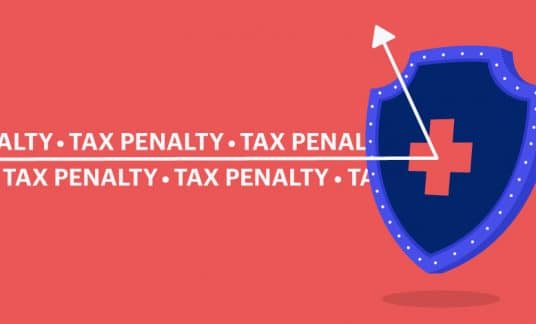Interviewing job applicants can be a murky and imprecise art. Unlike reviewing your financial statements or seeing how many receivables are 90 days past due, job applicant interviews don’t yield those kinds of exact facts.
Using an interview evaluation form is a way to make the interviewing process more precise and manageable. It can help measure a candidate’s overall fit for the open position.
Let’s go through why a candidate interview evaluation form is helpful to the hiring process and take a look at how forms can be tailored according to the industry or position. We’ll also have interview score sheets for download or learn how to craft your own.
Why Should You Use an Interview Evaluation Form?
An interview evaluation form gives you and your managers a structured tool to conduct interviews. A standardized interview rating sheet accomplishes the following:
Clarify Expectations for Candidates
This is the opportunity for you and any other colleagues involved in the hiring process to prepare questions to ensure you’ve covered the essential skills and attributes you want in your new hire. Think about the knowledge and personal skills a candidate will need to successfully fill this role. List each requirement on the candidate interview evaluation form.
Candidate Comparison
After the interviews, you put the findings in an interview rating sheet. This scores all applicants’ interviews consistently to get a fair, side-by-side comparison of all of them. In addition, following a structured interview form helps to reduce any unconscious hiring biases that the interviewers might have.
An evaluation form will score applicants on their skills, motivation, values and anything else you feel is vital for the job. You can review the evaluation forms in advance and modify them to suit the job you’re looking to fill and the requirements you’re looking for in a candidate.

What to Include on an Interview Evaluation Form
A simple, structured interview evaluation form has 3 sections:
1. Basic Data
- Applicant’s name
- Name of interviewer
- Date
- Role of job
2. Evaluation Criteria
Each candidate evaluation form should contain a scale of 1 to 5. The rating system should define each point on the scale to give interviewers a clear understanding of how to rate a candidate on each criterion. The following scale is an example:
- 5 – Exceptional
- 4 – Above average
- 3 – Average
- 2 – Below average
- 1 – Unsatisfactory
Explore the following areas about the candidate:
Relevant experience: Has the candidate acquired and used the necessary job skills in previous work experiences? Does the candidate’s previous work experiences match the skills needed for this job?
Educational background: Does the candidate have the relevant education or training for this job? Does the candidate have any specific required licenses or certifications?
Strengths of specific role skills: Does the candidate have the required technical skills for the job?
Verbal communications: Does the candidate have effective communication skills?
Candidate enthusiasm: Did the applicant seem enthusiastic about the job and working for your company? Did the candidate seem interested in getting the job?
Knowledge of company: Has the candidate demonstrated they’ve researched your company before coming to the interview?
Match to company values and culture: How does the candidate describe the working environment that best fits them? What were the circumstances of past successes? What types of working conditions do they find challenging?
Interpersonal skills/ working with others: Considering the applicant’s personality style and temperament, do you think the applicant will fit in with other employees? Will the candidate be able to develop a working rapport with other employees?
Initiative: Did the candidate show instances of taking individual initiative to solve problems?
Customer focus: Did you get the impression that the candidate places a high value on providing quality customer service?
3. Overall Impression, Comments and Recommendations
This portion of the form should have room for the interviewer to write notes about their impression of the candidate as well as the candidate’s suitability for the job. It should ask for 3 options: recommend hiring this applicant, holding for further interviews or not recommended.
Internship Candidate Evaluation Form
While an intern probably will not have the required educational requirements and previous work experience, they should demonstrate a suitable personality, skills and work ethic to become a future full-time employee.
The interview questions should largely be the same as when you interview for a permanent position. However, remember the most important issue with interns is determining their enthusiasm for the opportunity to learn about your business.
Technical Team Member Evaluation Form
Interviewing for IT positions can be tricky if you don’t have a computer science or otherwise technical background. In that situation, other IT employees should be part of the interview process to help identify the best candidates. You can also consult with the resigning employee to get a better understanding of the position’s nuances.
Adding the following questions to the sample interview form will help you better assess a candidate’s merits.
Education: What computer-related degrees and certifications does the candidate have? The applicant needs, at a minimum, to have computer-related degrees. What courses does the candidate take to stay up-to-date on technology?
Technical: Does the candidate have training for and/or experience with the software your business uses? How will the candidate ensure that program revisions will run smoothly?
Work experience: Review the applicant’s resume and look for past projects that have utilized the candidate’s knowledge and expertise. Determine if the candidate used creativity and innovation to solve problems. How did the candidate identify the problem areas and find solutions?
Behavioral: Explore how the candidate will bring something new to your company. What is the degree of the candidate’s work passion, and will that passion apply to your business? What kind of work environment does the candidate prefer? The answer to this question will give you some insight into the candidate’s ability to fit into your business.
Even though you may not have in-depth technical knowledge, you can get a feel for a candidate’s abilities by evaluating the answers to these questions. Did the candidate respond confidently? Did you get the impression that the applicant was comfortable with your questions?
Candidate Interview Evaluation Form for Executives
Interviewing for executive and managerial positions is more complex and requires broader questions. These areas should be added to the sample interview form:
Leadership skills: Managers must have the ability to inspire and motivate employees. Has the candidate demonstrated positive leadership skills in previous positions? Can the candidate grasp problems and make timely, informed decisions? Can the candidate balance workloads, resolve conflicts, direct other employees and maintain a productive work environment?
Approach to problem-solving: Can the candidate find solutions to ambiguous situations with incomplete data? Is the candidate able to organize issues and come up with pathways to solve problems?
Setting and tracking goals: Is the candidate familiar and comfortable setting goals, meeting timelines and monitoring results?
Communication: Are the candidate’s answers concise, clear, well-organized and easy to follow? Was it difficult to get information from the candidate?
What You Shouldn’t Ask on an Interview Evaluation Form
Some questions are inappropriate to ask an interviewee or are irrelevant to a candidate’s qualifications. Avoid any questions about:
- Age, race, sex, gender, religion
- Status of day-care for kids
- Expectations of becoming pregnant
- Intentions to change marital status
If you ask a question related to any of those topics, candidates could wonder if you declined their candidacy or hired them because of their responses. You could face a discrimination lawsuit if it’s suspected that you based staffing decisions on age, sex/gender identity, disability or religion.










